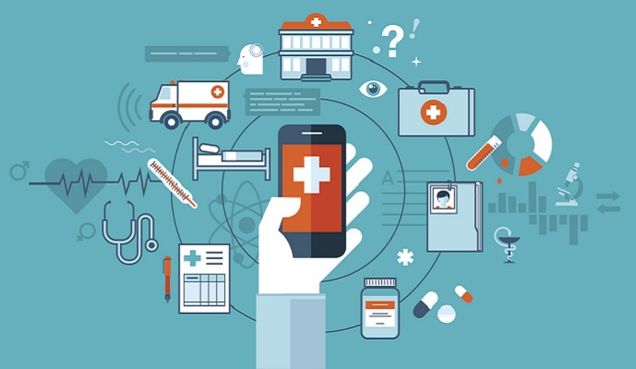Institute Focused Research Programs: Catalyzing AI-driven Research
Overview
The Hariri Institute for Computing catalyzes convergent research and innovation through its Focused Research Programs (FRPs), which provide seed funding for faculty-driven efforts in multi-disciplinary teams to coalesce in sustainable ways. With the rapid advancement of artificial intelligence (AI), these programs are increasingly focused on AI, receiving $1.6 million to develop and leverage AI-driven and convergent research approaches to tackle complex foundational science challenges and societal problems.
Learn about these research programs below.
Foundational Research

From Self-Driving Labs to Community-Driven Labs (FY25 FRP)
This FRP aims to develop the digital infrastructure and basic science to transform Self-Driving Labs (SDLs) into community-driven laboratories. Sponsor: Hariri Institute for Computing. Learn more.

Quantum Convergence (FY23 FRP) focused on launching broad conversations and collaborations across BU around quantum science and engineering. An outcome of this work was securing a $2.8 million NSF Growing Convergence Research award. The award aims to accelerate the development of trusted, low-overhead tools for computation on hidden data that increases the public’s trust in modern AI tools and creates new opportunities for data-powered, socially responsible innovation. Learn more.

Teaching Machines Human-Like Intelligence (FY23 FRP) aimed to create convergence around foundational research in artificial intelligence (AI) at BU. Learn more.
Energy Systems

Privacy Preserving Energy Analytics for Data Centers (FY 25 FRP)
This FRP aims to demonstrate, for the first time, that large-scale computer systems will achieve cost reduction and energy efficiency improvements via a novel privacy-preserving, collaborative, and scalable analytics and optimization framework. Sponsors: Hariri Institute for Computing and the Center for Reliable Information Systems & Cyber Security (RISCS). Learn more.
Healthcare
 Enhancing Models for Breast Cancer Risk Prediction and Bias Mitigation through Clinician AI Collaboration (FY25 FRP)
Enhancing Models for Breast Cancer Risk Prediction and Bias Mitigation through Clinician AI Collaboration (FY25 FRP)
This FRP aims to identify the hidden sources of biological and demographic biases of artificial intelligence (AI) in breast cancer risk prediction based on mammography images. Co-Sponsors: School of Public Health Population Health Data Science Program, the Clinical and Translational Science Institute, the Evans Center for Interdisciplinary Biomedical Research, and the Digital Health Initiative at the Hariri Institute for Computing. Learn more.
 Multimodal Transformer Architectures for Neuropathology Study of Alzheimer’s Disease (FY25 FRP)
Multimodal Transformer Architectures for Neuropathology Study of Alzheimer’s Disease (FY25 FRP)
This FRP aims to improve premortem diagnosis of neuropathologic processes underlying cognitive impairment (mild cognitive impairment and dementia) utilizing a machine learning approach. Co-Sponsors: School of Public Health Population Health Data Science Program, the Clinical and Translational Science Institute, the Evans Center for Interdisciplinary Biomedical Research, and the Digital Health Initiative at the Hariri Institute for Computing. Learn more.

Novel data science and AI approaches for Brain Health and Brain Disease (FY24 FRP)
Digital Health Initiative (DHI) Special Track: This FRP brings together clinicians, neuroscientists, engineers, biostatisticians, and computer and data scientists with the objective of connecting methodologies with scientific questions related to detecting, preventing and treating brain disease. This FRP is cosponsored by the Hariri Institute, the School of Public Health and the Clinical & Translational Science Institute (CTSI). Learn more.
 Health Equity in the Wake of Continued Climate Change: Leveraging Big Data to Inform Action (FY24 FRP)
Health Equity in the Wake of Continued Climate Change: Leveraging Big Data to Inform Action (FY24 FRP)
The goal of this FRP is to provide the BU climate and health research community access to shared resources to accelerate research, innovation, and translation in this area. This FRP is jointly funded by the Hariri Institute and the Institute of Global Sustainability (IGS). Learn more.
 Optimal Bio-Inspired Design of Holistic Rehabilitation Systems (FY24 FRP)
Optimal Bio-Inspired Design of Holistic Rehabilitation Systems (FY24 FRP)
This FRP focuses on developing theory-informed principles embedded into a lightweight and adaptable system to realize efficient, safe, and intuitive wearable robots for broad mobility assistance across users, tasks, environmental conditions, and disabilities. Learn more.
 Leveraging AI to Examine Disparities and Bias in Health Care (FY21 FRP) explores the application of machine learning and artificial intelligence (AI) in health care. Learn more here.
Leveraging AI to Examine Disparities and Bias in Health Care (FY21 FRP) explores the application of machine learning and artificial intelligence (AI) in health care. Learn more here.
Population Health
 Continuous Analysis of Mobile Health Data among Medically Vulnerable Populations (FY22 FRP) leverages mobile health data to develop medical models. Learn more here.
Continuous Analysis of Mobile Health Data among Medically Vulnerable Populations (FY22 FRP) leverages mobile health data to develop medical models. Learn more here.
Sustainability
 Data and Misinformation in an Era of Sustainability and Climate Change Crises (FY23 FRP) aims to understand the nature, origins, spread, impacts, and possibilities of disarming disinformation about the climate issue in an effort to address the climate crisis. Learn more about this joint FRP with the Institute for Global Sustainability here.
Data and Misinformation in an Era of Sustainability and Climate Change Crises (FY23 FRP) aims to understand the nature, origins, spread, impacts, and possibilities of disarming disinformation about the climate issue in an effort to address the climate crisis. Learn more about this joint FRP with the Institute for Global Sustainability here.

AI for Understanding Earthquakes (FY25)
This FRP aims to apply apply artificial intelligence (AI) to improve our understanding of earthquakes, including exploring optimal deep learning architectures for seismic data; investigating use of video-surveillance infrastructure as an alternative to costly Earthquake Early Warning (EEW) systems; and employing machine learning to advance our understanding of earthquakes. This FRP also led to a $750K NSF grant to further explore using artificial intelligence to understand earthquakes. Sponsor: Hariri Institute for Computing. Learn more.

Machine Learning for Chemistry and Materials Science (FY21 FRP) seeks to advance the design and synthesis of small molecules and materials through machine learning. An outcome of this work was securing a $3 million NSF Research Traineeship (NRT) grant to advance convergent research in sustainable energy conversion and storage. Learn more.
Are you a BU faculty member with an idea for a future FRP? Learn more about the application process by clicking here.